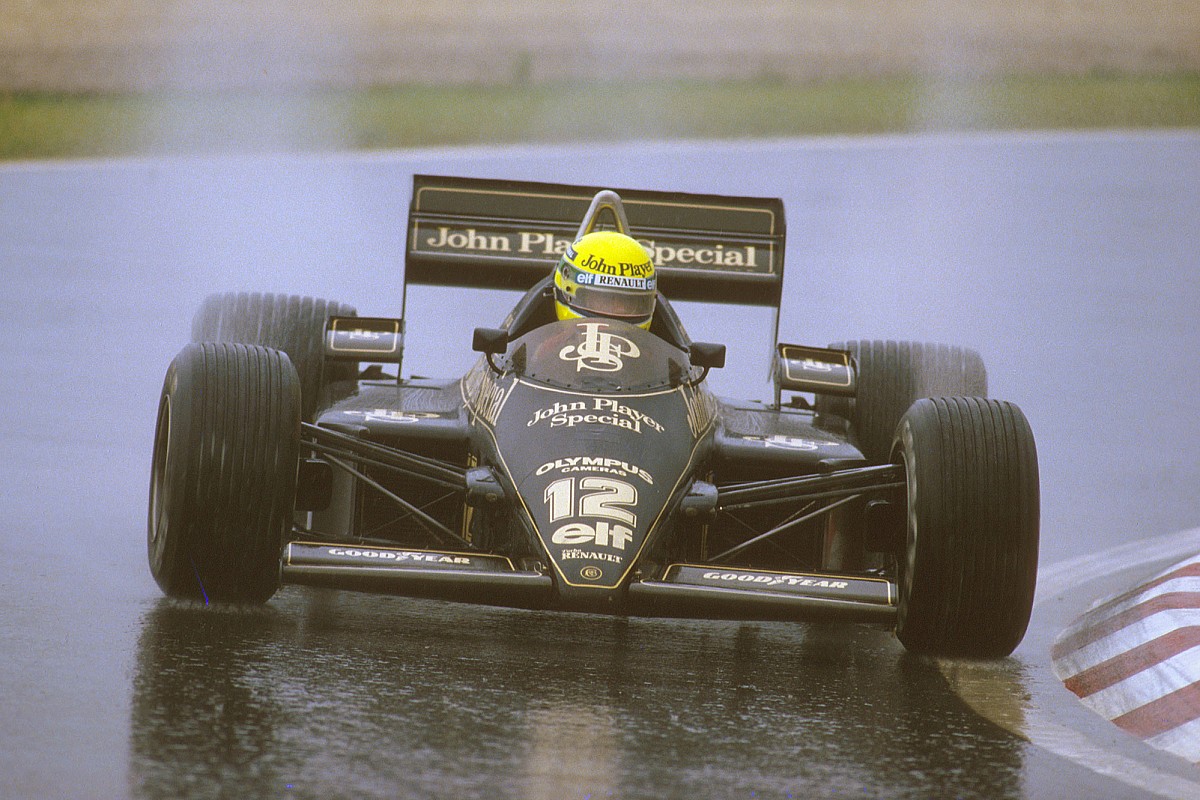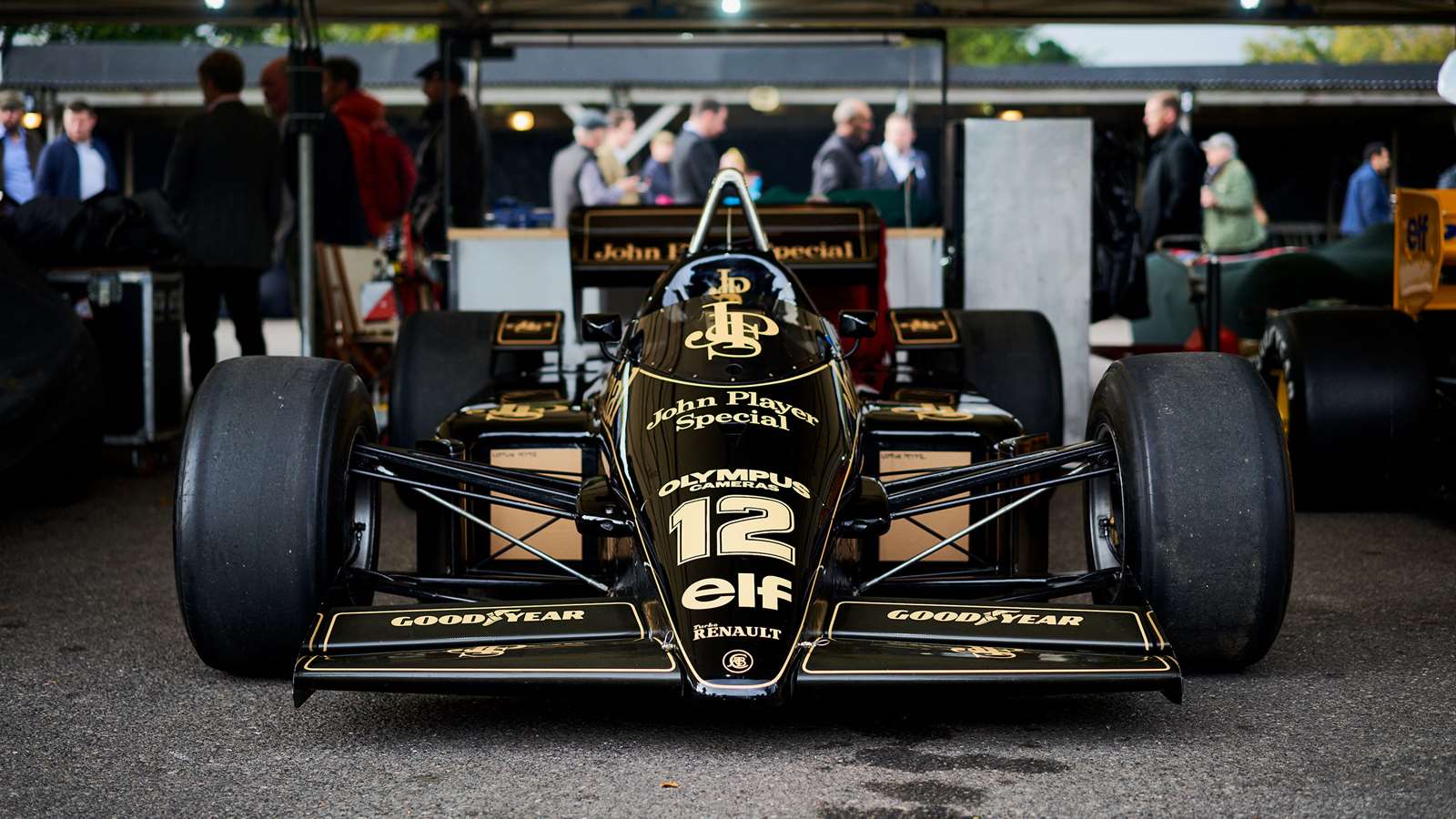A late electrical problem dashed Senna’s hopes for a podium finish in Rio de Janeiro’s opening round. When he arrived at Estoril for the next race, he was determined to earn his first points of the season.
In the first qualifying session, Senna’s Renault-powered 97T showed remarkable speed. He secured pole position, beating Alain Prost from McLaren by 0.413s and his teammate Elio de Angelis by 1.152s. De Angelis had tire issues and encountered traffic during his qualifying runs.
Senna, excited about his first F1 pole, hoped to lead from the start to avoid any problems. On race day, heavy rain soaked the track, putting Senna’s wet-weather skills to the test once again. Despite never testing the car in wet conditions, Senna dominated the race from the beginning.
Former world champion James Hunt praised Senna’s talent, especially in challenging conditions like those at Estoril. As Senna led the race, other drivers struggled to keep up or crashed due to the terrible conditions.

Senna faced challenges like poor visibility and aquaplaning but managed to maintain control of his car. He waved his arm to officials, indicating that the race should have been stopped due to the heavy rain and standing water.
Despite the difficult conditions, Senna maintained a significant lead over his competitors. He won the race by over a minute from Michele Alboreto, with Patrick Tambay finishing third.
After the race, Senna expressed how tough it was to control the car in the slippery conditions. He admitted to making mistakes but felt fortunate to secure the victory.
Senna’s joy was evident as he celebrated with his team in parc ferme. This victory held great significance for him, reflecting on his years of dedication to motor racing since childhood.
Although many hailed Senna’s later victory at Donington Park in 1993 as his greatest performance, he believed his win at Estoril in ’85 was unmatched, as it required more skill and control, especially in such challenging conditions.

